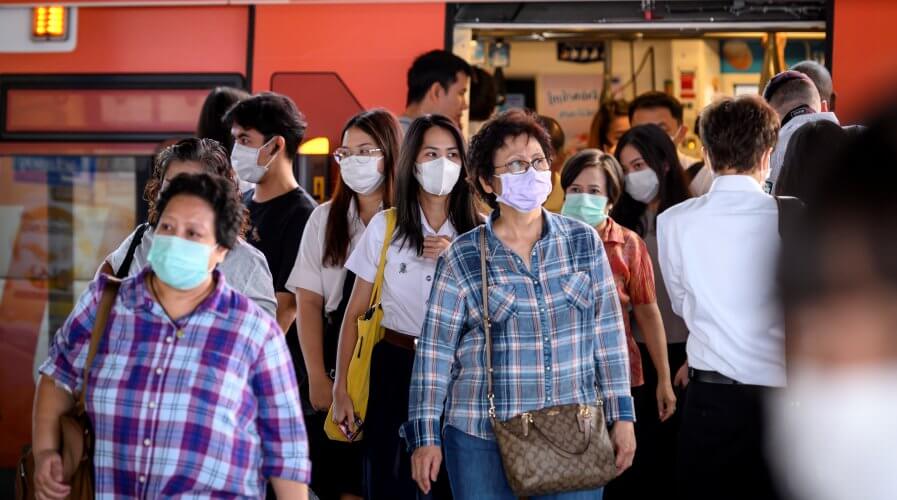
Commuters with face masks at a busy train station in Thailand. Source: AFP.
Think you might have COVID-19? Now you can just ask a chatbot
Artificial Intelligence (AI) has proven itself to be an indispensable part of the effort in combating the current COVID-19 pandemic.
AI-powered chatbots, in particular, have been extremely useful; and many telemedical companies are in a tight race to roll out such tools. Factors such as the rise of affordable internet connectivity and the increasing adoption of smart devices place chatbots in a unique position to reach people without having them meet a physician face to face. This is a great plus point, especially since the virus’ main mode of transmission is through human contact.
Healthcare companies and organizations are getting creative, and are using these chatbots in various ways.
One US-based program, for example, is offering a platform for worried patients to text their concerns about the virus to a chatbot, which would, in turn, link them to remote doctors.
Already programmed with basic recommendations from the Centers for Disease Control and Prevention (CDC) and the World Health Organization (WHO), the chatbot is able to provide instant answers to questions such as “should I wear a mask?”, or “what are the symptoms?”.
If a person reports a fever or cough, or has traveled to an area experiencing outbreaks, the bot would be able to connect them to licensed doctors via phone or video. If, then, the doctor determines that the patient is at high risk for having the virus, arrangements can be made to have the patient get treatment at a local hospital.
Others have decided not to engage third-party service providers, and come up with chatbot technologies of their own.
The Washington based hospital, Providence St. Joseph Health, has ‘Grace’, its own web-based chatbot that can help determine the risk level for COVID-19 infections by guiding patients through a coronavirus assessment tool. The hospital also has its own telehealth platform, Providence Express Care, that can help patients schedule direct appointments for initial consultations, and follow-ups after.
The ominous spread of the COVID-19 pandemic highlights the urgency to utilize technology innovation in improving the up and coming field of telemedicine.
Not only does this reduce the need for high-risk patients to wait in crowded clinics, it also mitigates the risk of infection to patients with non-coronavirus complaints. More importantly, using telemedicine to make preliminary contact with medical professionals will minimize the risk of infection to one of the most vulnerable groups in such pandemics-healthcare workers. Now is as good a time as ever for both governments and tech organizations alike to invest in telemedicine, and leverage technology for the better of the society.
READ MORE
- 3 Steps to Successfully Automate Copilot for Microsoft 365 Implementation
- Trustworthy AI – the Promise of Enterprise-Friendly Generative Machine Learning with Dell and NVIDIA
- Strategies for Democratizing GenAI
- The criticality of endpoint management in cybersecurity and operations
- Ethical AI: The renewed importance of safeguarding data and customer privacy in Generative AI applications


